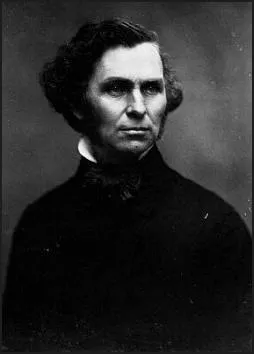Why Was Maine the First State to Try Prohibition?
The groundbreaking “Maine law” laid the groundwork for other states to experiment with temperance laws
/https://tf-cmsv2-smithsonianmag-media.s3.amazonaws.com/filer/7a/d2/7ad2d347-3fba-4cbd-aff2-39cfa7ce655b/the_drunkards_progress_-_color.jpg)
On this day in 1851, the state of Maine passed a law banning the sale of alcohol.
Four years later, 3,000 rioters stormed a Maine city hall looking for illicitly purchased booze. The Portland Rum Riot, as it came to be known, resulted in one death and several injuries, as well as the loss of the mayor’s political career. It foreshadowed the national pushback against the era of Prohibition almost 70 years later.
The Maine law wasn’t a complete ban on alcohol: “an exception for ‘medicinal, mechanical and manufacturing purposes’ kept many liquor wagons rolling,” writes Kelley Bouchard for the Portland Press-Herald. Like the national Prohibition that stretched from 1920-1933, the law also didn’t stop many people from drinking. Mainers found ways around the law, Bouchard writes. Some brewed booze at home and sold it to neighbors out of their kitchens. Farmers made hard cider and wine out of fruit. “Tavern owners saw fines as a cost of doing business,” she writes, while pharmacies and grocery stories sold legal “medicines” that just-so-happened to be alcoholic.
At the center of Maine’s early experiment in alcohol prohibition was Portland, and its mayor, Neal Dow. An ambitious politician and a Quaker, he was the mayor of Portland from 1851 to 1858. Dow led the temperance movement in Maine, records the New England Historical Society. He hated alcohol for reasons related to the Christian temperance movement, but also for its links to slavery. Dow believed “rum and slavery fed off each other,” the historical society writes.
Dow was a founding member of the Maine Temperance Society and was instrumental in Maine's prohibition movement, the historical society writes. Before getting the Maine law on the books, Dow had been instrumental in getting the so-called "Twenty-Eight Gallon Law" passed in 1846, writes author Kate McCarty. This law prohibited the sale of alcohol in less than 28 gallon quantities to all but doctors–meaning that the wealthy could still afford to buy alcohol, but the average drinker couldn't. "Tippling shops" that sold single drinks and were where most people drank were shut down, she writes.
With this and many other initiatives, Dow made his political name in the temperance movement. Later, he even ran for president on a temperance platform, Bouchard writes.
Ironically, the vice he fought against was also his undoing. Rioters gathered around Portland’s city hall in 1855 when "[t]he city’s Irish working-class residents found out their teetotaling, saloon-raiding mayor was storing $1600 worth of liquor at City Hall,” the historical association writes.

It was the last strike in a long dispute. Along with rum and slavery, Dow was also opposed to immigration–particularly from Ireland. His xenophobic opposition was clear to Portland’s large population of Irish immigrants, who were disproportionately impacted by the law.
Dow didn’t intend to drink the alcohol held in the city hall’s storeroom, writes Madeline Bilis for Boston magazine. The law “allowed for specific individuals to buy alcohol for medicinal purposes,” she writes. “Dow, who was not an appointed purchaser, broke his own law by buying alcohol on the city’s behalf to distribute to doctors in the area.”
Although his violation was a technical one, people who could not buy liquor themselves were furious at this perceived proof of government hypocrisy. A local paper called upon citizens “by virtue of Neal Dow’s law to seize Neal Dow’s liquors and pour them into the street.”
Protestors took the injunction seriously. “Bottles of alcohol in the storage area were broken,” Bilis writes, and Dow was furious. Late in the day, he ordered militia to fire on protestors.
That was more or less the end of Dow’s political career. The Maine law was repealed in 1856, although “it was re-enacted in various forms,” writes the historical association, and "eventually folded into the state constitution in 1885," Bouchard notes.
But Maine had set a precedent. After the passage of the Maine law, Massachusetts, Rhode Island and Vermont were among the states to jump on the bandwagon (an expression that, like Prohibition, has its roots in 1850s America.) Next stop: the 18th Amendment.